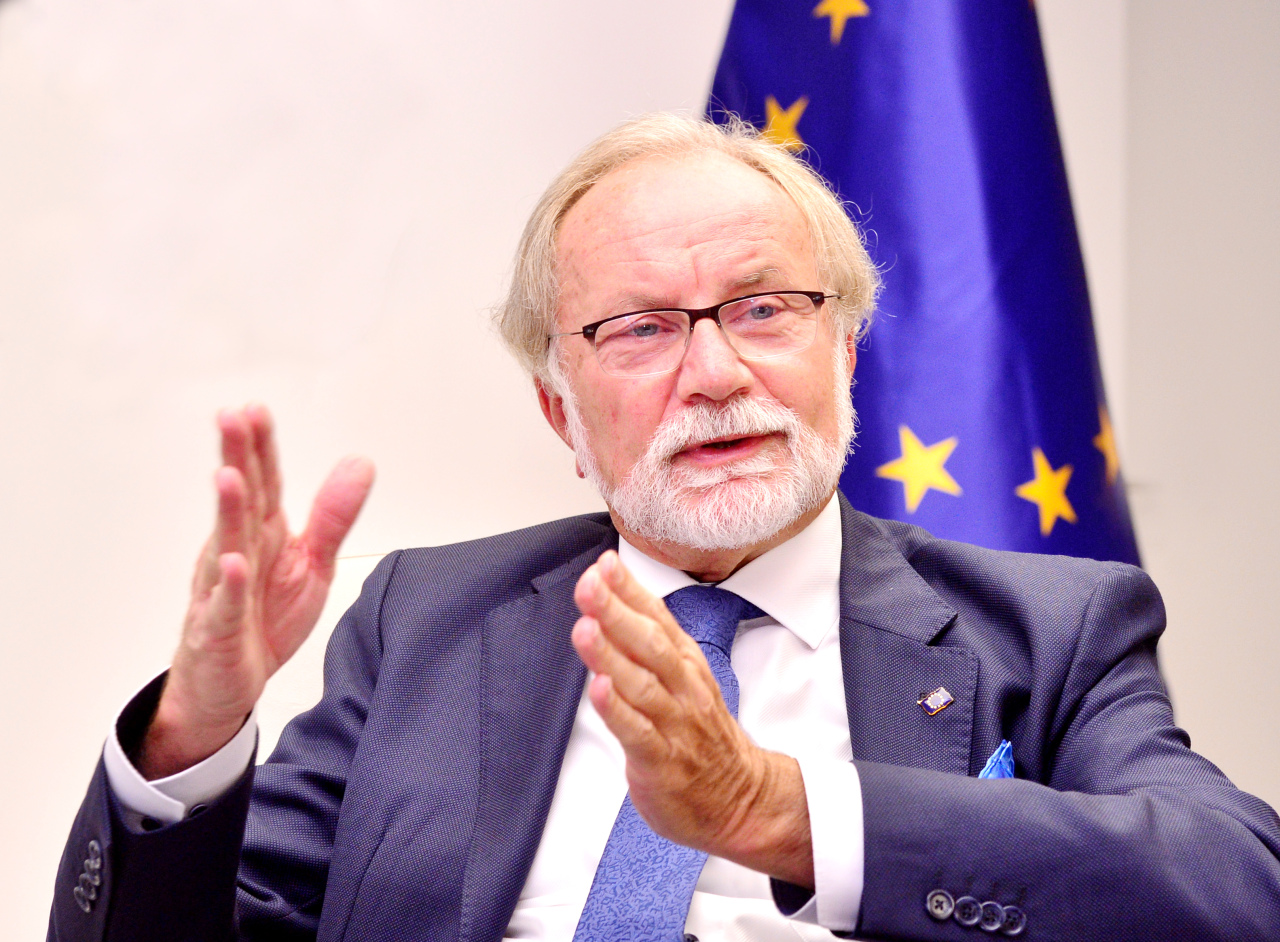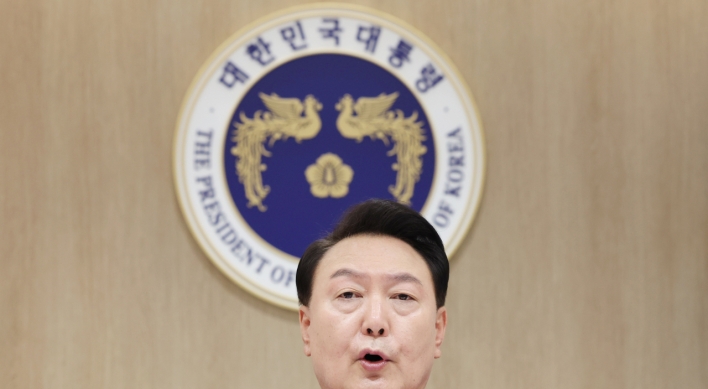[Green & New] Time for action on ‘Green New Deal’: EU envoy
By Bae HyunjungPublished : Aug. 25, 2020 - 20:22

The Korea Herald is publishing a series of articles to address the Moon Jae-in administration’s “Green New Deal” policy, one of the key pillars of the so-called “Korean New Deal” economic stimulus package. -- Ed.
While giving momentum to its “Green New Deal,” the South Korean government should now strive to make tangible commitments in order to involve the private sector in green financing, according to a top representative of the European Union here.
“The private sector needs to understand that there is no contradiction between green and growth, when it comes to deal,” Michael Reiterer, ambassador of the European Union to South Korea, told The Korea Herald in an interview.
“Green deals are essentially growth-driven programs, targeted at creating sustainable jobs amid a changing world and worsening climate conditions. Contradictions will occur if the related budget is spent with no green economy in mind.”
Reiterer, who will complete his diplomatic career later this month and retire to his Austrian hometown, Innsbruck, has served the current post since February 2017.
The Seoul Metropolitan Government recently conferred honorary citizenship on the senior diplomat, acknowledging his role in promoting the city’s policies and enhancing its partnership with key European counterparts.
During his term as the top EU delegate here, Reiterer has been an ardent advocate of the green deal concept, especially since the Moon Jae-in administration unveiled its own Green New Deal earlier this year as part of an economic stimulus package called the Korean New Deal.
His stance also reflected the reinforced cooperation between Asia’s fourth-largest economy and the EU. President Moon Jae-in, in his teleconference with the EU leadership in late June, named the EU as a key partner in the green deal drive.
“The EU delegation to Korea has been pushing ahead with the green initiative even before the deal was officially announced,” Reiterer said, pointing out that the latest initiative centers upon its other pillar -- the Digital New Deal.
While the green initiative has been ongoing in Europe for several years now, mostly led by young people with concerns about a sustainable future, it was ironically the pandemic that fueled the agenda.
“In the past, despite the growing awareness on climate change, there was always some resistance to the fiscal input and the final amount was constantly downsized. But now, there suddenly seems to be an unlimited supply of capital in Korea, EU, US and everywhere in the world,” he said.
In the European Union, EU leaders recently reached a deal to channel 750 billion euros ($886 billion) into a pandemic recovery fund, in addition to the 1 trillion euro already allocated for the bloc’s Green Deal.
“These investments are to ensure that the transition along the way takes place in a climate neutral, digital and socially balanced manner,” the ambassador said.
For the EU, the green deal is intended to function as a job-creation machine, and there is no reason that Asia’s fourth-largest economy should reject the concept, he added.
“There is still a widely spread misconception that greening the economy is against the economy, which is wrong on all accounts,” he said.
“”While the world is undergoing drastic changes, numerous new jobs are created in the green service industry. The accompanying task is to ‘leave nobody behind,’ a principle which should be applied to those who may lose jobs amid the transition.”
The money allocated to green growth will not only generate jobs directly but can also be used for long-term activities such as research and development. In the EU, 35 percent of the budget has been set aside for green research.
One of the goals for the EU is to establish a general standard for the concept of “green financing” that may be applied throughout the world.
“If there was a clear definition of green finance, there could be a significant shift of capital as influential investors such as pension funds could invest in certified green businesses,” Reiterer said.
The European diplomat pointed to the example of Norway, which set aside funds for future generations and only invests the given amount in environment-friendly companies.
“When this Norwegian funds approves an investment, the decision would be deemed a green certificate (for the corresponding company),” he said.
“This could be an efficient model to convince private investors that green investment is good business.”
Reiterer also nudged Seoul’s government to take more tangible actions, including binding legislation, in time for the 26th United Nations Climate Change Conference, or COP26, slated for next year.
“So far, countries, civil societies and concerned parties have gathered up for talks, but the time for talking is now over,” he said.
“As an initial step, Korea should make a detailed commitment and set the timeline of 2050 for carbon neutrality, put an end to coal financing, and hopefully become Asia’s first country to do so.”
By Bae Hyun-jung (tellme@heraldcorp.com)












![[KH Explains] How should Korea adjust its trade defenses against Chinese EVs?](http://res.heraldm.com/phpwas/restmb_idxmake.php?idx=644&simg=/content/image/2024/04/15/20240415050562_0.jpg&u=20240415144419)






